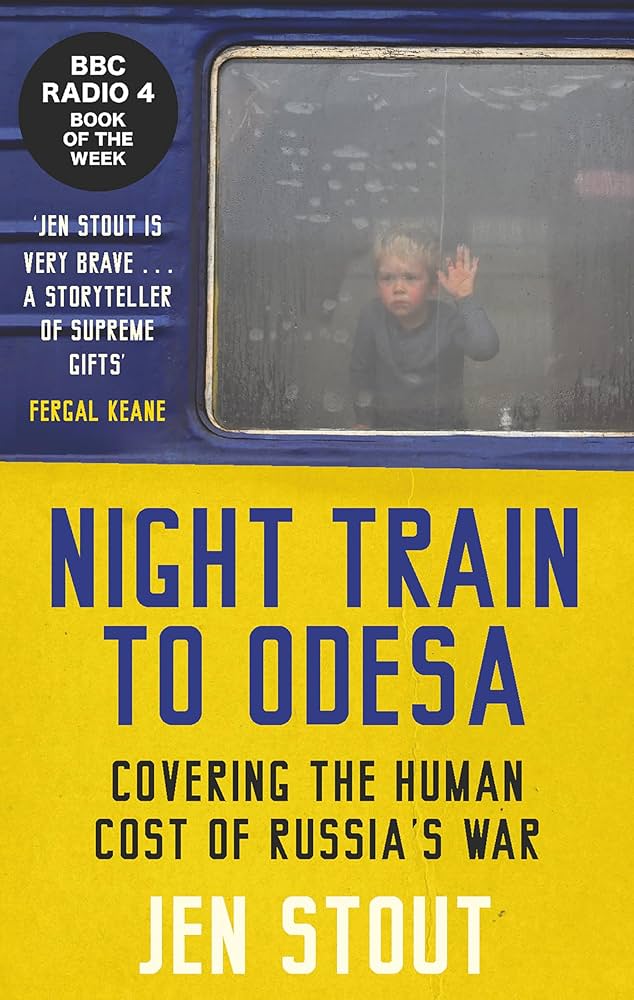Book Review: Night train to Odesa: Covering the human cost of Russia’s war by Jen Stout
Review by Heather Stacey, STAND International
Imagine you’d just landed in a town in Siberia and, as you made your way to the airport building, your phone began to ping with the news of Russia’s invasion of Ukraine. This is how Jen Stout, a writer and journalist from Shetland, experienced the beginning of the full-scale war on 24 February 2022.
She had been part way through a nine-month fellowship programme in Russia. Her arrival in Siberia was followed by a few anxiously hectic days organising her return to the UK. Once back, however, she was soon on the move again – initially to Romania to report first hand on the waves of Ukrainian refugees being welcomed as they crossed the border and then on to Ukraine and Odesa, a city she’d long dreamt of visiting. Odesa, a city now at war, its famous statues and opera house sandbagged and Russian warships moored menacingly on the horizon.
The events of the last two years are the latest scenes painted on the ancient many-layered canvas of Ukraine’s history. Many people are not familiar with the historical context. Even those who thought they understood it may now be recognising that their knowledge was filtered through the distorting lenses of the Russian Empire and the Soviet Union.
The aim of the book, then, is partly to explain this back story. But this is not a history book, it’s a vibrant and immediate account told through the personal stories of people the author met and spoke with.
Jen is no ordinary war correspondent (although perhaps there is no such thing). For a start, she has no major news organisation behind her, providing expensive equipment, fixers and a safety net if things go wrong. As a freelance journalist, she is entirely dependent on her own initiative and on the extraordinary network of friends and acquaintances she weaves around herself.
Yet this also gives her the freedom to move nimbly around the country, unconstrained by an editor’s agenda. She can choose to stay for longer in one place and immerse herself much more deeply in the stories she finds. She talks to stall holders at Odesa’s famous Pryvoz market to understand the perspective of Russian-speaking Ukrainians. She mingles with musicians and soldiers on leave at a fundraising gig in a bunker in Kharkiv. She accompanies a drone surveillance team north of Kharkiv and meets people being evacuated from villages under constant bombardment.
Jen has spoken of her reticence about taking photographs of people she encounters on what could be the worst day of their lives. But she has no need of photos – the words she writes convey such intense images and paint such vivid and empathetic pictures that the reader too experiences the deep, human connections she makes.
Jen Stout’s powerful account has recently won the First Book of the Year category at Scotland’s National Book Awards – a well-deserved accolade for a book I would recommend everyone to read.
Night train to Odesa: Covering the human cost of Russia’s war is Published by Polygon, 2024.
